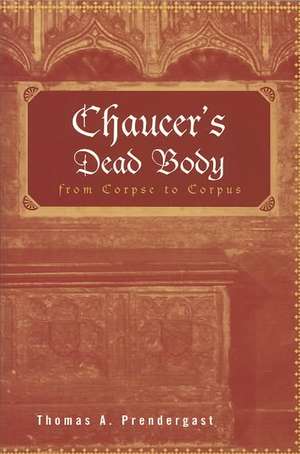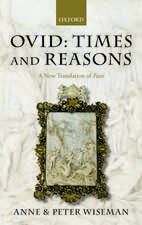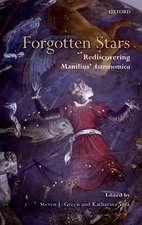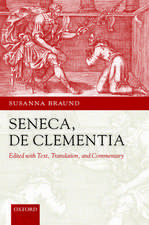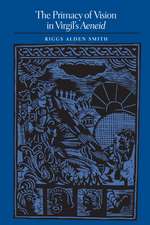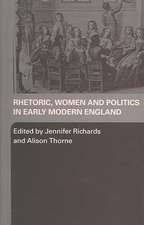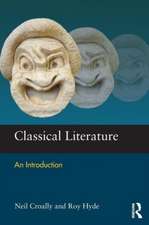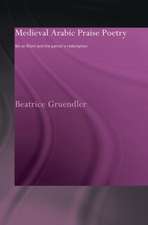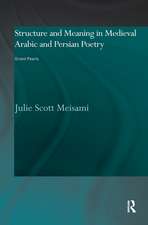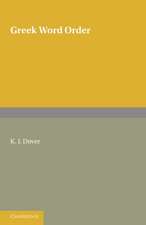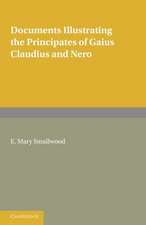Chaucer's Dead Body: From Corpse to Corpus
Autor Thomas A. Prendergasten Limba Engleză Paperback – 24 noi 2003
| Toate formatele și edițiile | Preț | Express |
|---|---|---|
| Paperback (1) | 352.08 lei 6-8 săpt. | |
| Taylor & Francis – 24 noi 2003 | 352.08 lei 6-8 săpt. | |
| Hardback (1) | 1002.26 lei 6-8 săpt. | |
| Taylor & Francis – 24 noi 2003 | 1002.26 lei 6-8 săpt. |
Preț: 352.08 lei
Nou
Puncte Express: 528
Preț estimativ în valută:
67.38€ • 70.08$ • 55.63£
67.38€ • 70.08$ • 55.63£
Carte tipărită la comandă
Livrare economică 14-28 aprilie
Preluare comenzi: 021 569.72.76
Specificații
ISBN-13: 9780415966795
ISBN-10: 0415966795
Pagini: 188
Dimensiuni: 152 x 229 x 13 mm
Greutate: 0.35 kg
Ediția:1
Editura: Taylor & Francis
Colecția Routledge
Locul publicării:Oxford, United Kingdom
ISBN-10: 0415966795
Pagini: 188
Dimensiuni: 152 x 229 x 13 mm
Greutate: 0.35 kg
Ediția:1
Editura: Taylor & Francis
Colecția Routledge
Locul publicării:Oxford, United Kingdom
Recenzii
"This book is an ingeniously conceived account of the relation between the physical tomb of Chaucer and its place in the development of Chaucerian studies. Along the way, however, this account becomes more than merely ingenious in its excavation of a deeply compelling logic that links memorialization and canon formation. This is, in short, no mere 'Chaucer study.' Prendergast's examination of what is at stake not just in the history of Chaucer's tomb but also in the historiography implicit in Chaucerian criticism and the changing forms and interests of Chaucerian necrology is ultimately a kind of history of English literature, an account of the medievalisms implicit in the assertion of positive and negative literary values from the fifteenth into the twentieth centuries, from Thomas Hoccleve to T.S. Eliot. It should certainly appeal to literary scholars of all historical persuasions, and certainly will appeal to medievalists." -- D. Vance Smith, Princeton University
"Thomas Prendergast weaves an intricate, complex, and multiply-layered argument, which begins with the 'fact' of the transfer of Chaucer's body from its original tomb to its location as the 'cornerstone' of Poet's Corner and which continues by exploring the anxieties occasioned by this removal in their connection with the processes of establishing Chaucer as the 'Father of English Poetry.' Given its topic, this book is genuinely original and intriguing. Grounded in research that often opens untapped sources, it locates itself squarely within and makes its own significant contribution to recent theorizations of the body in medieval studies, at the same time that it traces the dual preoccupation with Chaucer's status and with preserving his tomb to England's preoccupation with its own legitimacy as an imperial force and identity." -- Sheila Fisher, Trinity College
"Thomas Prendergast weaves an intricate, complex, and multiply-layered argument, which begins with the 'fact' of the transfer of Chaucer's body from its original tomb to its location as the 'cornerstone' of Poet's Corner and which continues by exploring the anxieties occasioned by this removal in their connection with the processes of establishing Chaucer as the 'Father of English Poetry.' Given its topic, this book is genuinely original and intriguing. Grounded in research that often opens untapped sources, it locates itself squarely within and makes its own significant contribution to recent theorizations of the body in medieval studies, at the same time that it traces the dual preoccupation with Chaucer's status and with preserving his tomb to England's preoccupation with its own legitimacy as an imperial force and identity." -- Sheila Fisher, Trinity College
"Thomas Prendergast weaves an intricate, complex, and multiply-layered argument, which begins with the 'fact' of the transfer of Chaucer's body from its original tomb to its location as the 'cornerstone' of Poet's Corner and which continues by exploring the anxieties occasioned by this removal in their connection with the processes of establishing Chaucer as the 'Father of English Poetry.' Given its topic, this book is genuinely original and intriguing. Grounded in research that often opens untapped sources, it locates itself squarely within and makes its own significant contribution to recent theorizations of the body in medieval studies, at the same time that it traces the dual preoccupation with Chaucer's status and with preserving his tomb to England's preoccupation with its own legitimacy as an imperial force and identity." -- Sheila Fisher, Trinity College
"Thomas Prendergast weaves an intricate, complex, and multiply-layered argument, which begins with the 'fact' of the transfer of Chaucer's body from its original tomb to its location as the 'cornerstone' of Poet's Corner and which continues by exploring the anxieties occasioned by this removal in their connection with the processes of establishing Chaucer as the 'Father of English Poetry.' Given its topic, this book is genuinely original and intriguing. Grounded in research that often opens untapped sources, it locates itself squarely within and makes its own significant contribution to recent theorizations of the body in medieval studies, at the same time that it traces the dual preoccupation with Chaucer's status and with preserving his tomb to England's preoccupation with its own legitimacy as an imperial force and identity." -- Sheila Fisher, Trinity College
Cuprins
Introduction Chaucer's Death: Two Stories, Three Mourners Translating Chaucer: Denial and Resistance Nineteenth-Century Necronationalism and the Uncanny Beautiful Tomb/Beautiful Text Chaucer's Stature Appendix: Chaucer's Tomb and Nicholas Brigham An unpublished manuscript by Laurence Turner
